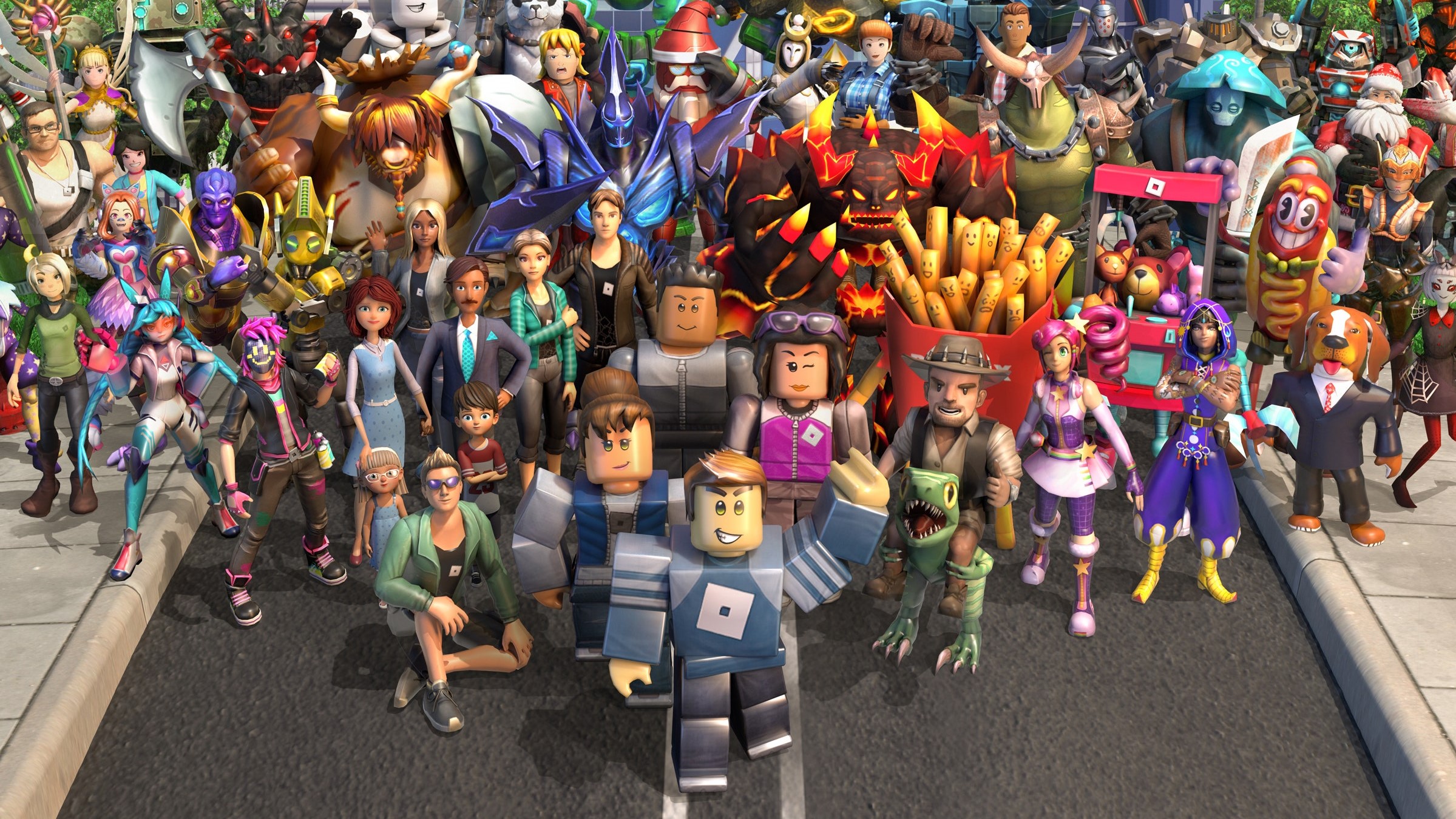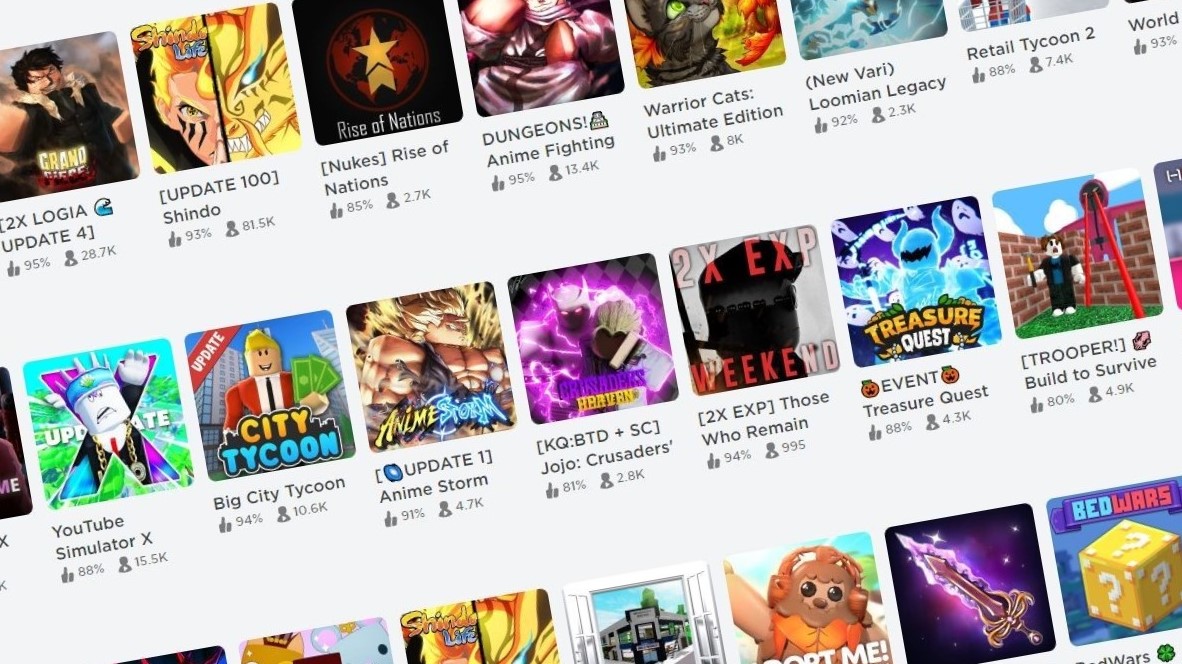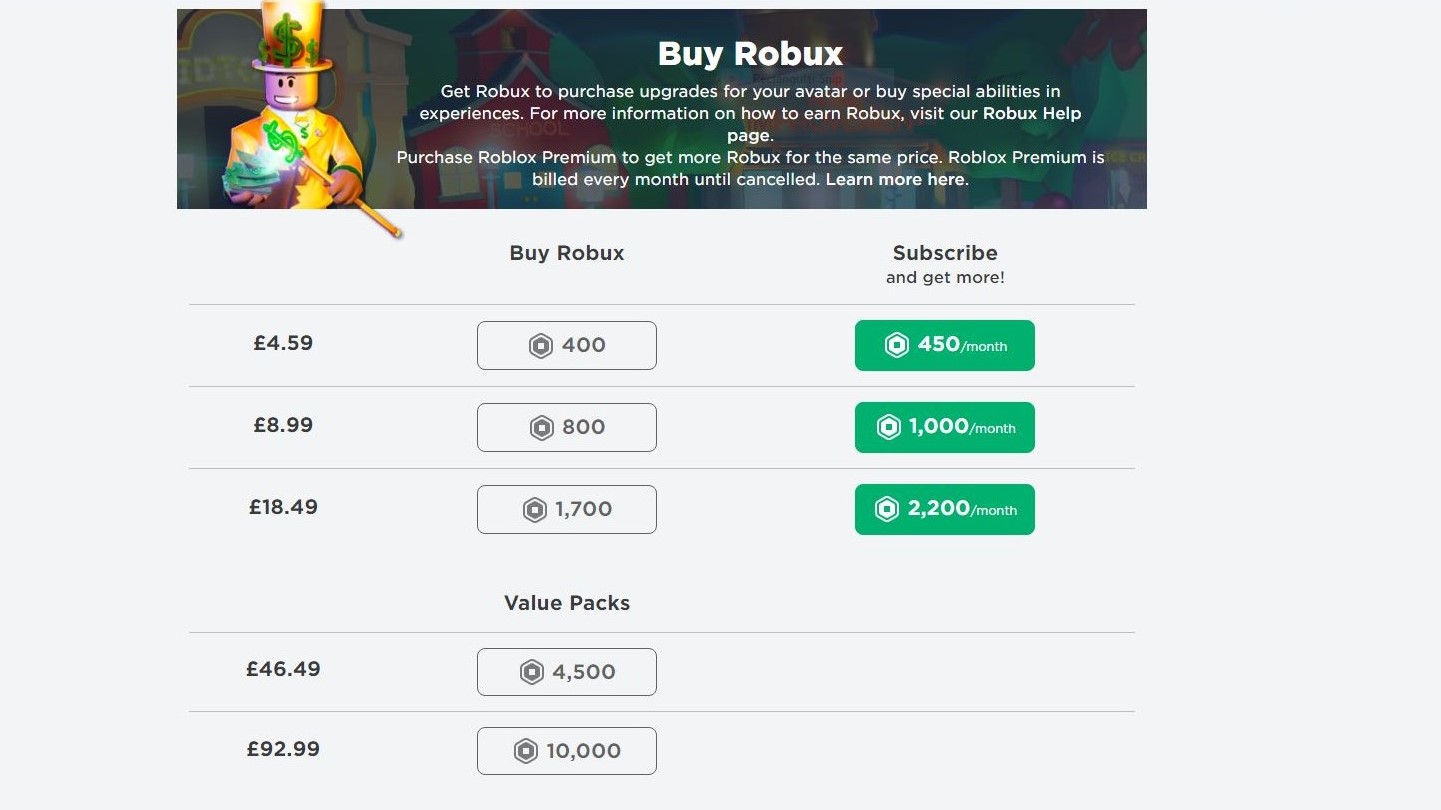Here's everything you need to know about Roblox, the gaming megaplatform making its own rules
Here's the state of the $38 billion gaming giant in 2021.

Earlier this month, Roblox announced it had reached a new record for its daily active users—43.2 million. Looking at monthly statistics, the gaming platform currently has 206 million users sign in and play every month (as of September 2021). For perspective, that's a great deal more than Minecraft, which sits at 140 million, and more than twenty times as much as Fortnite, whose active users peak at 10-15 million whenever the game hosts a live event.
They're all impressive stats, but it shows just how much of a gaming juggernaut Roblox is in 2021. It has gained a massive player base, and while the platform doesn't appeal to adults, its popularity has soared with younger children, with more than two-thirds of kids aged 9 to 12 playing it in the US and around 1.5 million children in the UK.
Where did this $38 billion gaming giant come from and how is it shaping up in 2021? Whether you're a game developer looking for new horizons, a player keen to jump in, or someone who just wants to know the deal with the weird blocky head characters is, here's a breakdown of everything you need to know about Roblox.
What is Roblox?
Roblox has been around a lot longer than you might think. It was first released in 2006, but gained little popularity until the latter half of the 2010s where its player count soared.
What many misunderstand about Roblox is it's not a single game, but an online platform where players can build and share creations with other users from all over the world. Think of it more as a digital storefront, a cross between Steam and YouTube, instead of something you can directly jump into and play.
Roblox's catalogue of games are all created by its users. The platform has its own development suite called Roblox Studio Software that includes a wealth of game creating tools. Each one built on the platform is completely different and separate from the others and creators can essentially make whatever they like including RPGs, shooters, racing games and more.

Can you make money in Roblox?
Roblox has an in-game currently called Robux, which can be used to purchase accessories for your avatar and as well as upgrades, skins, and cosmetics items.
The biggest gaming news, reviews and hardware deals
Keep up to date with the most important stories and the best deals, as picked by the PC Gamer team.
Roblox is free-to-play, but users can sign up to Roblox Premium, a membership system that gives you a 10% bonus and a monthly allowance depending on which tier you sign up to. $5 / £5 will get you 450, $10 / £9 for 1000, and $20 / £20 for 2200. This subscription also allows players to make real money off their creations and Roblox lets creators set their own prices for everything they build.
Out of the money made from a game, creators receive 24.5% of the profits, with Roblox taking a hefty 75.5% cut
Each creation has a different monetization model including paying full price for the game upfront, having in-game items and upgrades, and others may have a loot crate system. Having a look at the store pages for three of Roblox's most popular games—Adopt Me!, Welcome to Bloxburg, and Anime Fighters Simulator—the general price of regular in-game items can be anywhere between 200-400 Robux (so, a couple of quid), with rare and premium items being between 1500-2000 Robux (£10 / $10+).
Using this system, it's possible to make a living by creating games inside Roblox, and there have been many stories of how young entrepreneurs have kickstarted their businesses through the platform. Regardless of the number of success stories that have come out of Roblox, making a living from its game creation system can be incredibly difficult. Out of the money made from a game, creators receive 24.5% of the profits, with Roblox taking a hefty 75.5% cut. For comparison, Valve takes a 30% cut of sales from games bought through its games storefront Steam.

What's been happening with Roblox recently
Due to its success over the years, Roblox is planning to expand both in-game and in the company's California headquarters. As mentioned in its recent quarterly financial report, the expansion in San Mateo, California will cost roughly $90 million and add a whopping 123,000 square feet to the HQ. In-game expansions include the new virtual 'Party Place' feature that will let players host their own online events, and the company has even dipped into starting Fortnite-like concerts.
In November 2021, Lil Nas was the first artist to perform on the platform, with music group Royal Blood making an appearance halfway through Roblox’s annual award ceremony earlier this year, and upcoming performances include music duo Twenty One Pilots launching in September. Concerts follow the same structure at Fortnite's virtual events and, although a lot less flashy than Fortnite's, Roblox's shows have been well received and make for a surprisingly good music venue.
Despite its success, the platform has had a string of serious controversies. One of the main concerns is the lack of community moderation, with reports of certain Roblox creations promoting slavery, anti-Semitism, and containing reenactments of mosque shootings. There are even reports on how Roblox players are using the platform for radical far-right recruitment.
There are also Roblox horror stories about child grooming, virtual sexual assault, and hackers showing explicit material to children. The company says it's trying to fix these problems, with British child-safety expert and recent Roblox hire Laura Higgins telling The Guardian, "It’s an age-old thing: if people have bad intentions towards children, they’re going to gravitate towards where the children are. We’re constantly reviewing the tools that we have, and looking at ways to improve them."
But it doesn't just stop there. An investigation from People Make Games' Quintin Smith revealed how Roblox is exploiting its young game developers by making it incredibly difficult for anyone to make money on the platform. As mentioned before, on top of having to purchase a Roblox premium subscription and the company taking a 75.5% cut of all sales, the video report goes into numerous other struggles.
If you want your game to get noticed out of the millions of games on the platform you'll need to pay for ad space with Robux, and what's worse, if a user wants to turn their cash into real money the minimum withdrawal is 100,000 Roblux which equates to $1000. When combined with the fact that the ones making these games are mostly kids, it's easy to see how Roblox could be seen as exploiting the work and creativity of children, lured into creating content for a platform that doesn't have their best interests at heart.

What is the future of Roblox?
Co-founder and Roblox CEO David Baszucki has expressed his big plans for the future of the gaming platform. The first is trying to attract more older players through better quality graphics and a new system to create better and more engaging game elements.
The biggest news, though, is that Baszucki's ultimate vision is to turn Roblox into a 'metaverse.' In a presentation pitch to investors earlier this year, Baszuck said that he wants to turn the gaming space into a virtual world, enabling users to build whatever they want that could be seen via virtual reality headsets. An example he gave was, instead of reading about the history of ancient Rome, you could visit the city re-created inside Roblox.
Even if Baszucki's metaverse comes to fruition or not, the daily number of active Roblox players continues to grow and the platform shows no signs of slowing down. Its popularity has grown to the point that the company now has its own developer conferences. But even with all its successes, the platform still faces some serious issues. With accusations of developer exploitation and a history of child grooming controversies, Roblox is in desperate need of a system that protects its players. Although representatives say they are working on tackling these issues, without some sort of thorough community moderation, these problems aren't going anywhere.
Rachel had been bouncing around different gaming websites as a freelancer and staff writer for three years before settling at PC Gamer back in 2019. She mainly writes reviews, previews, and features, but on rare occasions will switch it up with news and guides. When she's not taking hundreds of screenshots of the latest indie darling, you can find her nurturing her parsnip empire in Stardew Valley and planning an axolotl uprising in Minecraft. She loves 'stop and smell the roses' games—her proudest gaming moment being the one time she kept her virtual potted plants alive for over a year.


